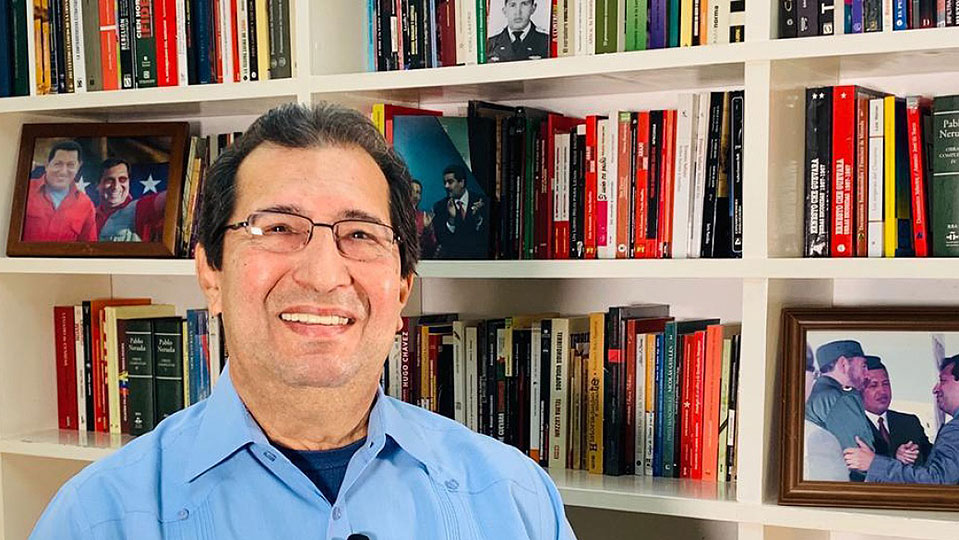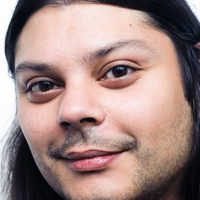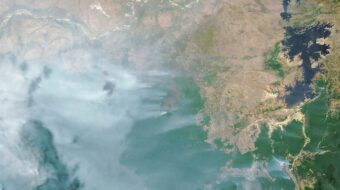
Venezuela’s National Assembly elections this weekend offer the prospect of ending the right-wing majority the opposition won five years ago.
Given what the right have used their parliamentary majority to do — including repeated attempts to overthrow the democratically elected President Nicolás Maduro, organize violent street insurgencies that targeted and killed scores of suspected “Chavistas” (often identified as such solely by their dark skin) and provide a platform for the assembly’s rotating president, Juan Guaidó, to unconstitutionally declare himself president of the country last year, winning a pro-revolutionary majority would be a huge step forward.
Adán Chávez Frias, elder brother of the revolutionary Hugo who led Venezuela from 1999 until his death in 2013, is currently Venezuelan ambassador to Cuba and vice-chair of the United Socialist Party (PSUV).
He says the opposition-controlled National Assembly has in practice been a tool of “Yankee imperialism” subverting Venezuela’s government and seeking a “parliamentary coup d’état” against other branches of government.
“Those who won the election in 2015 were representatives of the most radical-right, truly fascist forces,” he says.
“Since they took office in 2016 they started managing interventions from the United States, illegal sanctions against Venezuela.”
Although the Bolivarian revolution was able to mobilize supporters in massive counter-demonstrations when attempts to overturn the government were at their height, and have seen off each opposition push to seize power, Chavez says attempts have come “so close” to success that regaining a majority in the assembly would be a “very important victory” that will allow the body to work together with other branches of government again, pass laws and bring the political stability needed to overcome the U.S.’s economic war on Venezuela.
The Constituent Assembly, that was elected in 2017 to amend the constitution because of the constitutional crisis created by the National Assembly’s war against the presidency, will wind up at the end of this year, its job done.
Chávez is clear that electing the constituent assembly — predictably denounced by Western governments — was essential because “the right were about to bring us to the point of civil war.
“Their attempts [to seize power] were so violent, they were destabilizing the most important cities by blocking roads, setting fire to state institutions, even killing people because they looked like Chavistas.”
The Constituent Assembly carried out legislative roles the National Assembly could not after it was declared in contempt, but its primary importance, in Chavez’s eyes, is that it helped demonstrate to opposition leaders that “the path of violence was just not going to achieve their goals.”
He praises President Maduro for pursuing dialogue with opposition forces, despite “constant attacks from the US on the dialogue process,” that have resulted in most opposition parties agreeing to participate in the coming election, though a hard-line minority including Guaidó are refusing to do so.
Over 14,000 candidates have been put forward for the election, the majority opposition candidates, because “the opposition has very many parties.” Of 106 parties in Venezuela over 90 are opposition parties, he says.
But this time around Venezuela’s government will face some opposition from the left as well as the right. The country’s Communist Party and some allies have come together to form the Popular Revolutionary Alternative (APR), which is contesting the elections separately from the PSUV-led alliance for the first time since 1998.
The APR accuses the Maduro government of shifting to the right, prioritizing doing deals with representatives of Venezuelan business over progress towards socialism, supporting privatization of some state assets, and failing to act on the killing of poor farmers by landlords. It has also accused the government of complicity in a media blackout aimed at silencing its candidates.
Chávez says while never a communist, he has huge respect for the Communist Party of Venezuela (PCV), and like other PSUV leaders has appreciated its support for the PSUV over the course of the Hugo Chávez and Maduro governments.
He insists that different strategies are “completely normal in a group of forces which nonetheless share many fundamental principles.”
As for their standing candidates against the PSUV, “I respect that. I don’t agree with their criticisms of the government, but we respect their decision to participate in the election.
“I am sure that once the elections are over, if they manage to get candidates elected, they will add themselves to those deputies who are parliamentary representatives of the revolution.
“I am completely assured that they will not work with the opposition against the revolution, nor will standing by and not being involved be their policy.”
As for accusations that Maduro has shifted to the right, he says: “If that were true, then the U.S. government would not be attacking us as they are.
“They would diminish the sanctions. They would be looking for ways to start dialogue. We know for a fact that is not happening.”
The opposition participates because they have confidence in the process, he says. Venezuela’s electoral system was famously praised by former U.S. president Jimmy Carter as “the best in the world.”
Voters use biometric authentication to activate a voting machine that records the vote digitally and provides a receipt for the voter. The system is unriggable — something ironically demonstrated by the victory of the opposition five years ago.
Chávez says the government has learned from the mistakes that led to that defeat.
He argues that the PSUV tried to fight an election in “normal conditions” without realizing “we were in a war.”
The right and the media were able to blame economic problems on the government, and the role US sanctions and attacks played was less clear then than it is now.
As a result, large numbers of Chavista voters stayed at home in 2015 — but the very consequence of that, the opposition’s victory and the destabilization it caused, makes it less likely they will do so this time.
The huge mobilizations to defend the government from opposition coup attempts, the election of the Constituent Assembly in 2017, and the re-election of Maduro in 2018 all show that “the people of Venezuela have responded, have learned, have come out to vote.
“We are working really, really hard, making sure that people understand the reason for economic difficulties, looking at the solutions, how to break the blockade. That’s why we are very excited that on December 6 we are going to have a big victory.”
Is that why he thinks calls are coming from the United States and the European Union for the election to be delayed?
“There’s no reason to postpone the elections,” Chavez says. “If you ask those who make this proposal — the EU, for example — they give you no arguments.
“The only thing they have said in the past is that there is not enough time to organize a team of observers who can fly to Venezuela for the elections, but that for us is not an argument. If they cannot come, bad luck.
“That’s not a big enough argument to suspend an electoral process driven by the constitution and Venezuelan law. The period of the current National Assembly, according to the constitution, is coming to an end.”
Though Juan Guaidó’s presidency even of the defunct National Assembly has been disputed within that body since January, the election of a new assembly will remove any vestige of official status from him.
Will that be the beginning of the end for the farce by which Guaidó, an unelected pretender heading an entirely fictional government, is recognized by 55 countries?
“Guaidó is recognized by the governments of countries that are lackeys of the United States,” says Chávez, pointing out that a big majority of countries worldwide recognize the legitimate Maduro government.
“Right now that number, 55, has actually gone down; we don’t know how many countries are supporting the claim. And some of these governments are actually finding it rather embarrassing now.
“So when we have a new National Assembly, they will have to change their position.”
And will the inauguration of Joe Biden as U.S. president make any difference to the aggressive US sanctions against the country?
On that, he’s less optimistic. “I don’t really believe so.”
U.S. Establishment power structures are designed to ensure it can “intervene in and become owners of the rest of the world and that really is independent of who the U.S. president is,” he explains.
“When they elected the first Black president, Barack Obama, what changes were there in international policy with regards to Venezuela? Practically none. He was the president who first defined Venezuela as ‘an extraordinary threat to the national security of the United States’.”
Where he does see room for optimism, is that the U.S. “is becoming weaker and weaker. They are still powerful of course, financially, militarily.
“But when you compare it with what the world was like 15 or 20 years ago, you can see the U.S. is going through a political and economic crisis.
“There have been many demonstrations of the North American people … demonstrations against racism, against police assassinations … They have problems internally and externally.”
This he links to broader geostrategic developments such as the rise of China as well as the U.S. failure, despite all their efforts, “to defeat Cuba, Nicaragua, and Venezuela. The recipes they have applied to other countries for regime change — they have not managed to implement them with us.”
Indeed, the inspiration these three countries can provide to Latin America is demonstrated by their responses to the coronavirus pandemic, he argues.
In contrast to the U.S., which “is the first country in the world in the number of cases and deaths, we, the socialists, have been taking care of our people in a very efficient manner, free of cost.
“Cuba has given support to 50 different countries around the world while doing so. Socialist countries are better at looking after the people, while countries higher up the list [of infection and death rates] like Brazil have been killing their people.”
People can see that countries like the U.S. “don’t have the solutions — so we will manage, sooner or later, to create this new world that is beneficial for the rest of the planet.”












Comments